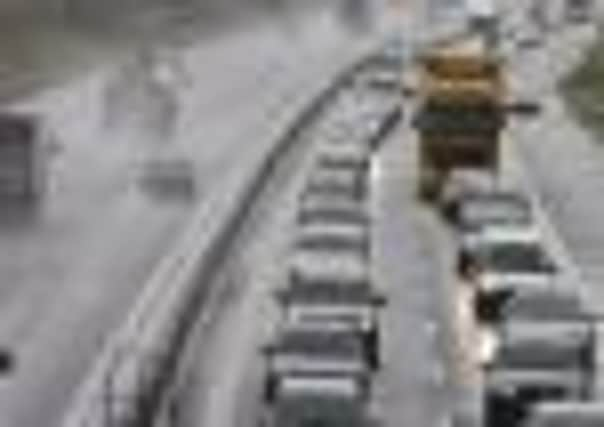Families plunged into ‘transport poverty’


The Royal Automobile Club Foundation highlighted that the vast majority of people spent more than 10 per cent of their disposable income on travel.
The average household allocates 14 per cent of weekly spending to transport – which is also its largest single cost – while the foundation said the poorest households with a car were spending at least 17 per cent of their income on transport.
Advertisement
Hide AdAdvertisement
Hide AdIt said those in “transport poverty” far outweighed those in “fuel poverty” – people spending more than one tenth of their income on heating.
Director Stephen Glaister said: “Rightly, there is much concern about the four million households who need to spend more than 10 per cent of their income to keep warm.
“Yet this figure is dwarfed by the 21 million households which spend over 10 per cent on transport. For the average household, transport is the single biggest outgoing, bar none.
“Just like heating our homes, most of us have to spend money on transport. There is no choice.
“While savings can be made at the margins by making fewer journeys and combining those which are essential, people have no option other than to go to work, visit the supermarket, see the doctor and take the children to school. That means paying for transport.
“It is true the cost of buying a car has fallen over recent years, but the cost of running one has soared. While most people can delay replacing their vehicle, they have to fill it with fuel, get it taxed and insured, and keep it maintained.”
The Institute of Advanced Motorists said clobbering drivers with tax rises was not the answer. Policy and research director Neil Greig said: “As the cost of getting about rises, spending on other areas gets cut, which dampens down recovery for us all.
“The Chancellor may see postponing duty rises as the answer, but until he stops seeing drivers as an easy tax source, cash demand will stay low and transport will not be able to play its full role in ending the recession.”
Advertisement
Hide AdAdvertisement
Hide AdHowever, environmental campaigners said public transport must be improved rather than motoring taxes cut.
Friends of the Earth Scotland chief executive Stan Blackley said: “The best way to combat transport poverty, particularly for the very poorest in society who don’t own or have access to a car, is not to reduce fuel duty, as the RAC Foundation seems to suggest, but instead to invest heavily in public transport, to improve and increase services and make them easier, more affordable and more attractive to use.”
Campaigners claimed yesterday cutting fuel duty would create nearly 200,000 jobs.
FairFuelUK said a Centre for Economics and Business Research report showed a 2.5p per litre reduction in fuel duty would create 180,000 jobs in the first year, at no net tax loss.